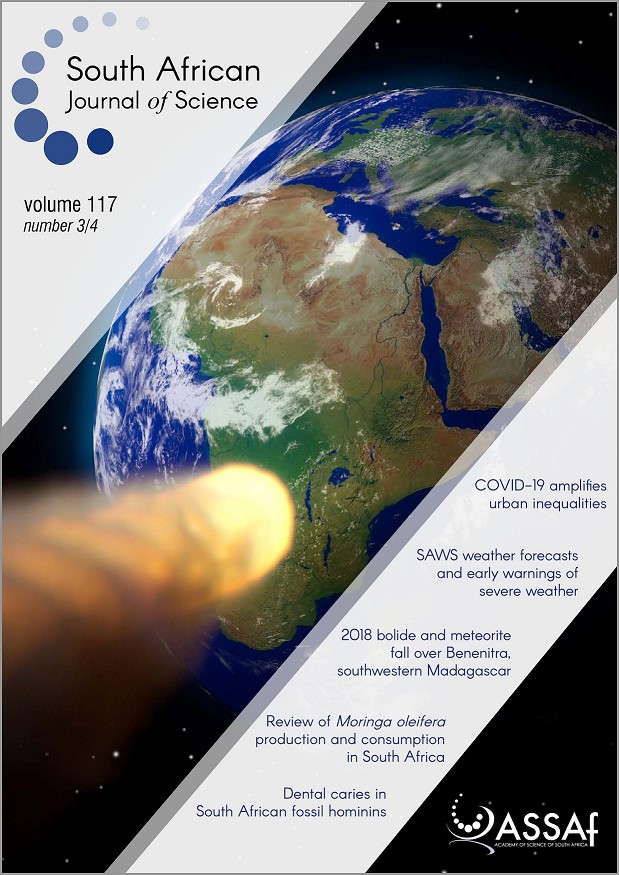COVID-19 amplifies urban inequalities
DOI:
https://doi.org/10.17159/sajs.2021/8939Keywords:
coronavirus pandemic, spatial inequalities, informal settlements, social grants, place-based policiesAbstract
COVID-19 has had asymmetrical spatial impacts across South Africa. New evidence from the National Income Dynamics Study: Coronavirus Rapid Mobile (NIDS-CRAM) survey shows that the pandemic and lockdown reflex have magnified pre-existing divisions within cities. Although COVID-19 has severely impacted the whole country, townships and informal settlements have proved more vulnerable than suburbs. As South Africa was already one of the most unevenly developed countries in the world, COVID-19 has widened the gap between places, which face very different levels of risk and resilience.
Significance:
- We present original evidence that COVID-19 has affected poor urban communities more than it has suburbs in South Africa. This is apparent in terms of employment and hunger. The effect has been to magnify territorial divisions and exacerbate social discontent. Premature withdrawal of government relief will aggravate the hardships facing poor communities that rely on these resources following the slump in jobs.
Published
Issue
Section
License

All articles are published under a Creative Commons Attribution 4.0 International Licence
Copyright is retained by the authors. Readers are welcome to reproduce, share and adapt the content without permission provided the source is attributed.
Disclaimer: The publisher and editors accept no responsibility for statements made by the authors
How to Cite
- Abstract 2265
- PDF 948
- EPUB 162
- XML 222












.png)